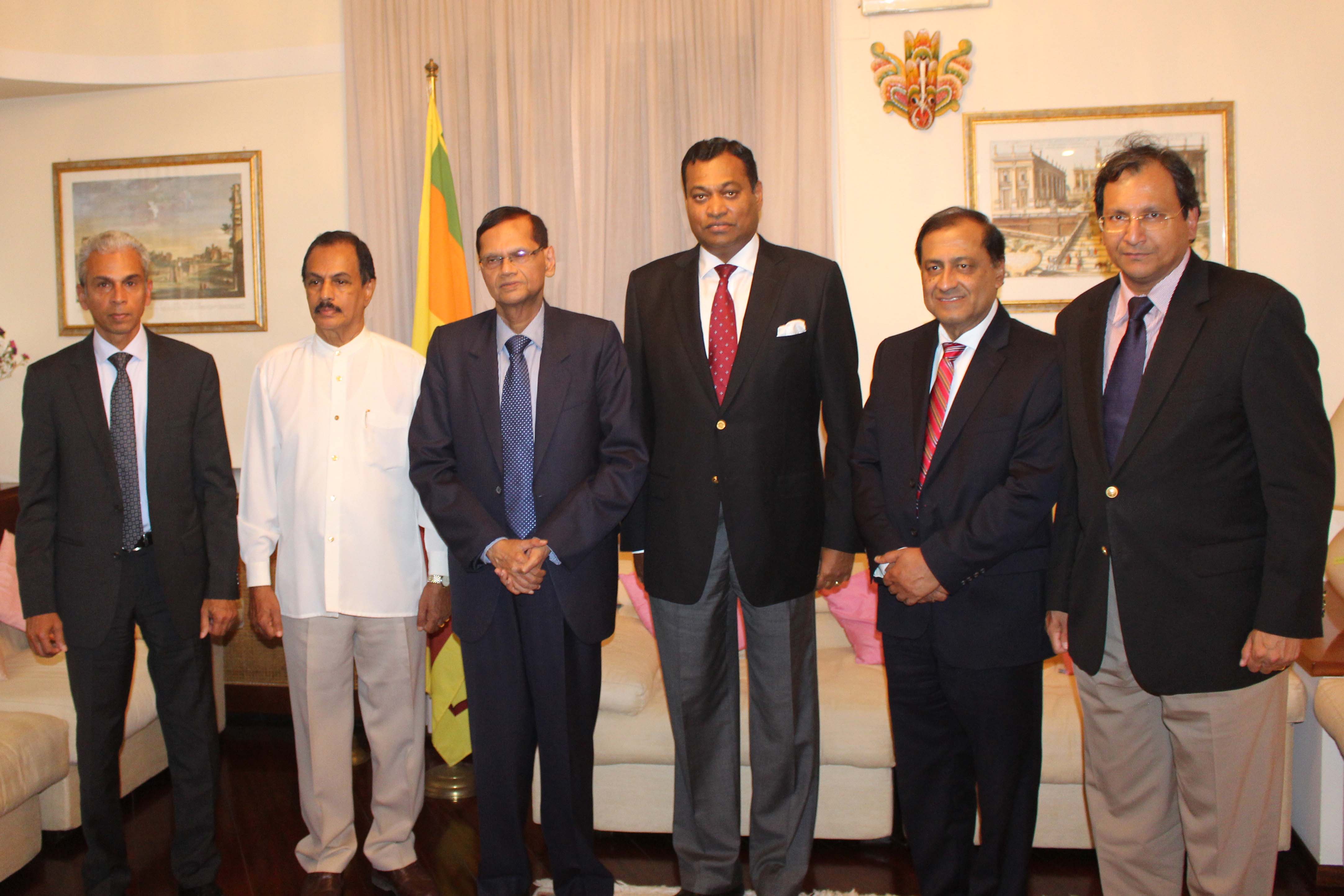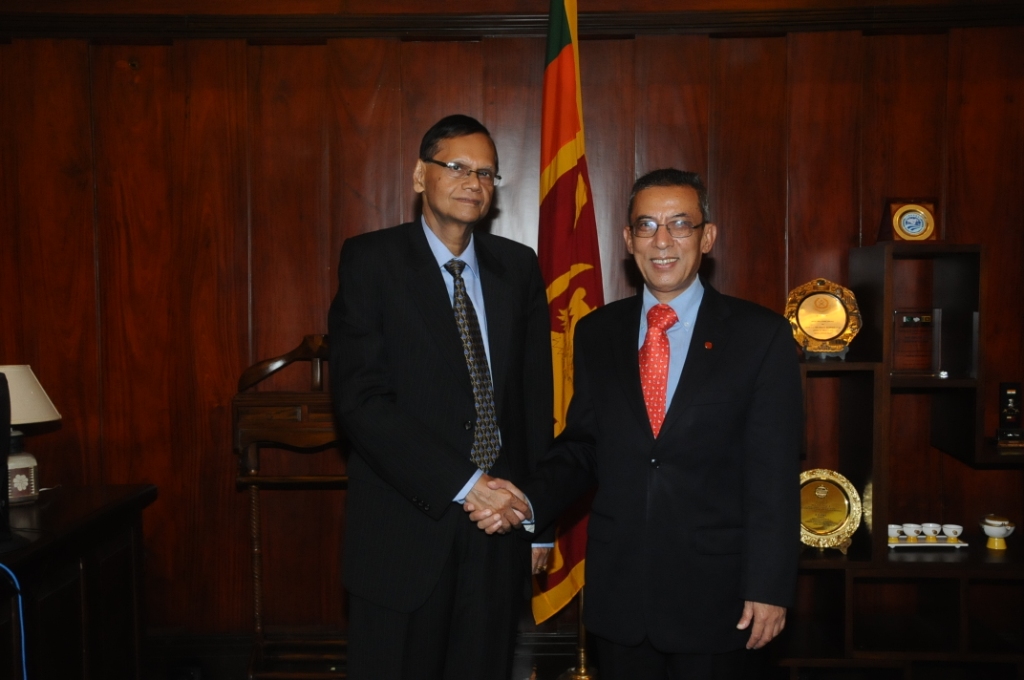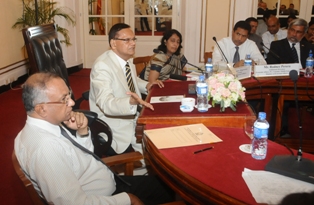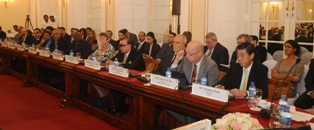The Minister of Foreign Affairs and Cooperation of Spain Mr. José Manuel Garcia-Margallo y Marfil called on President Mahinda Rajapaksa at Temple Trees this morning. The discussion focused on strengthening both dipl ...
අමාත්යාංශයේ මාධ්ය නිවේදන
To signify stronger relations, Spain to open embassy in Colombo
Minister of External Affairs, Professor G.L. Peiris, held bilateral discussions on Saturday with Mr. José Manuel Gracia, Minister of Foreign Affairs and Co-operation of Spain. Minister Peiris said that the growing stren ...
Japanese Prime Minister Abe to visit Sri Lanka
The Prime Minister of Japan, His Excellency Shinzo Abe has planned to undertake an official visit to Sri Lanka from 7th to 8th September 2014, at the invitation of President Mahinda Rajapaksa. It may be recalled that President Rajapaksa paid an official visit to Japan in March 2013 to mark the 60th anniversary of the establishment of diplomatic relations between Sri Lanka and Japan.
It is 24 years since the last visit of a Japanese Prime Minister to Sri Lanka. The Government of Sri Lanka is confident that this visit will enable both countries to further consolidate and expand the existing robust relations, particularly in trade and economic cooperation.
Prof. Peiris meets SL Envoys to European countries in Italy

Minister G.L. Peiris with Sri Lanka’s Ambassadors in France, Germany and Italy, the Permanent Representative to the United Nations in Geneva, and the Consul in Frankfurt.
At the Sri Lankan Embassy in Rome, External Affairs Minister Professor G.L. Peiris met with several of the country’s Ambassadors in the region for a comprehensive review of their work.
The envoys attending the discussion were Professor Karunaratne Hangawatte, Ambassador in France, Mr. Karunatilake Amunugama, Ambassador in Germany, Mr. Ravinatha P. Aryasinha, Permanent Representative to the United Nations in Geneva and Mr. Nawalage Bennet Cooray, Ambassador in Italy. Mr. Pradip Jayewardene, Sri Lanka’s Consul in Frankfurt, also participated in the meeting.
SAARC Secretary General meets Minister of External Affairs

As a part of the introductory visits to SAARC Member States, the new Secretary General of the South Asian Association of Regional Cooperation (SAARC), Arjun B. Thapa, is currently visiting Sri Lanka.
During his stay in Sri Lanka, the Secretary General paid a courtesy call on President Mahinda Rajapaksa on 11th August in Kandy and held discussions with the Secretary to the Ministry of External Affairs, Mrs. Kshenuka Senewiratne on 12th August at the Ministry in Colombo.
High Commissioner Pillay seeks to influence the OHCHR investigation process
The Ministry of External Affairs regrets the comments made to the media by the outgoing UN High Commissioner for Human Rights, Ms. Navanethem Pillay, relating to the investigation on Sri Lanka that has been undertaken by the UN Office of the High Commissioner for Human Rights (OHCHR) following the adoption by a vote of Resolution 25/1 in March 2014. In an e-mail interview to the Thomson Reuters Foundation, High Commissioner Pillay states that “the United Nations can conduct an effective investigation into reports of war crimes in Sri Lanka without visiting the country.”
The High Commissioner who is scheduled to leave office at the end of this month making public pronouncements to the media on an investigation which has commenced only recently is a clear indication of personal bias. It is evidence of an attempt to influence the investigation process and make it follow a preconceived trajectory. She refers in her statement to a “wealth of information outside Sri Lanka”. This is the same wealth of information that she has tended to refer to in the past, justifying it to be from credible sources, although their origins continue to remain undisclosed, and verification has not been facilitated. In fact the High Commissioner has desisted from acknowledging verifiable statistics of UN sources. Instead, she has sought to endorse exaggerated claims of former UN sources of spurious credentials by including such uncorroborated statistics in UN documentation. Utterances of this nature from an Officer who is expected to maintain the highest standards of objectivity is disappointing.
GL underlines the need for diplomatic missions to respect local sensitivities


In a comprehensive briefing for Ambassadors and High Commissioners accredited to Sri Lanka at the Ministry of External Affairs, last Thursday (7th August) Professor G.L. Peiris dealt with several current developments.



